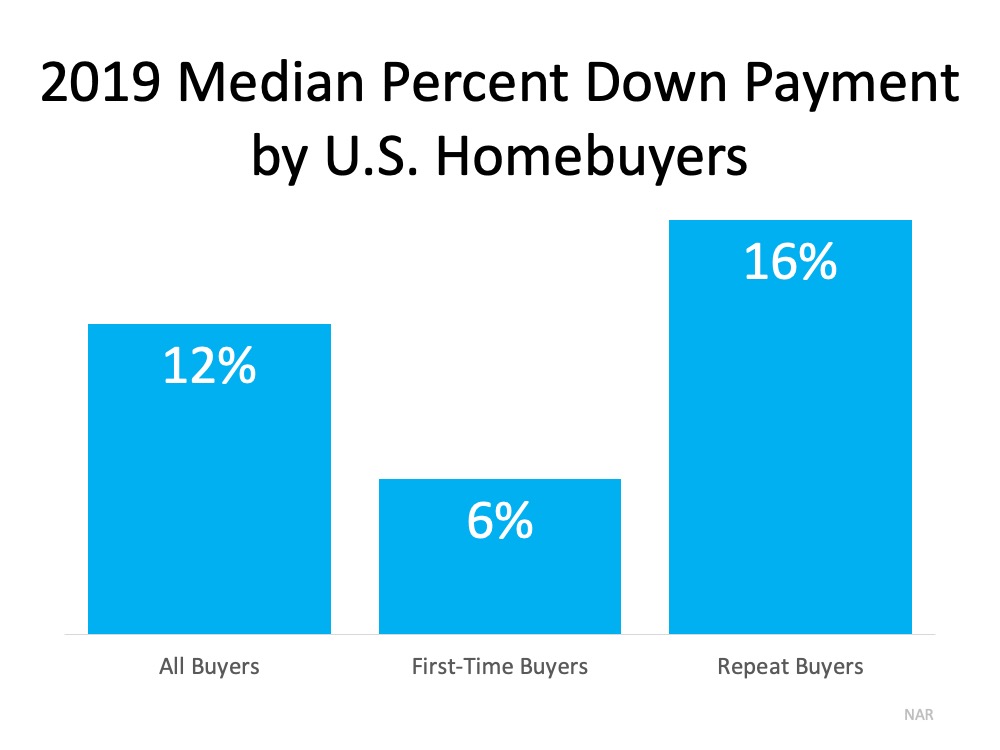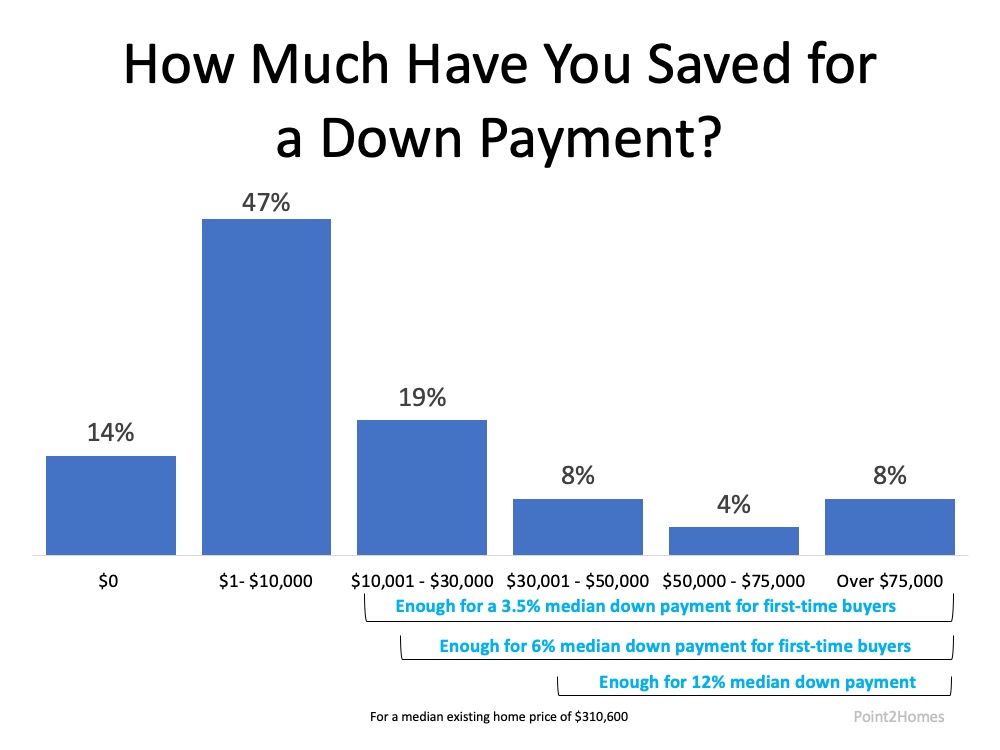
“Contrary to popular belief, you don’t always have to put 20% down to buy a house.”
One of the biggest misconceptions for first-time homebuyers is how much you’ll need to save for a down payment. Contrary to popular belief, you don’t always have to put 20% down to buy a house. Here’s how it breaks down.
A recent survey by Point2Homes mentions that 74% of millennials (ages 25-40) say they’re interested in purchasing a home over the next 12 months. The study notes, “88% say they have significantly less savings than the average national down payment amount, which is $62,600.”
Thankfully, $62,600 is not the amount every buyer needs for a down payment in the United States. There are many different options available, especially for first-time homebuyers (millennial or not). That amount can also be significantly less, depending on the purchase price of the house.
According to the National Association of Realtors (NAR), “The median existing-home price for all housing types in August was $310,600.” (These are the latest numbers available). NAR also indicates that:
“In 2019, the median down payment was 12 percent for all buyers, six percent for first-time buyers, and 16 percent for repeat buyers.” (See graph below):
 That means if a qualified first-time buyer purchases a home at today’s median price, $310,600, with a 6% down payment, in reality, the down payment only amounts to $18,636. That’s nowhere near $62,600.
That means if a qualified first-time buyer purchases a home at today’s median price, $310,600, with a 6% down payment, in reality, the down payment only amounts to $18,636. That’s nowhere near $62,600.
Knowing there are also programs like FHA where the down payment can be as low as 3.5% of the purchase price for a first-time buyer, that up-front cost could be significantly less – as little as $10,871 for the same home noted above. There are also other programs like USDA and loans for Veterans that waive down payment requirements.
The Point2Homes study also shares how much millennials have indicated they’ve saved for a down payment. As we can see in the graph below, 39% have already saved enough for a down payment on a median-priced home. Another 47% are close to reaching that goal, depending on the purchase price of the home. Unfortunately, the lack of knowledge about the homebuying process is keeping many motivated first-time buyers on the sidelines. That’s why it’s important to contact a local real estate professional to understand the requirements in your local area if you want to buy a home. A trusted agent and your lender can guide you through the process.
Unfortunately, the lack of knowledge about the homebuying process is keeping many motivated first-time buyers on the sidelines. That’s why it’s important to contact a local real estate professional to understand the requirements in your local area if you want to buy a home. A trusted agent and your lender can guide you through the process.
Bottom Line
Be careful not to let big myths about homebuying keep you and your family out of the housing market. Let’s connect to discuss your options today.
To view original article, visit Keeping Current Matters.
Buying a Home May Help Shield You from Inflation
A fixed-rate mortgage protects your budget, and home price appreciation grows your net worth.
Home Price Growth Is Moderating – Here’s Why That’s Good for You
It’s crucial to understand what’s happening in your local market and a local real estate agent can really help.
Are You Asking Yourself These Questions About Selling Your House?
The market isn’t at a standstill. Every day, thousands of people buy, and they’re looking for homes like yours.
Buyer Bright Spot: There Are More Homes on the Market
The number of homes for sale has grown a whole lot lately and that’s true for both existing and newly built homes.
A Record Percent of Buyers Are Planning To Move in 2025 – Are You?
Find the right agent to make sure your house is prepped, priced, and marketed well, so you can get ahead of the competition!
The Real Benefits of Buying a Home This Year
Let’s break down why homeownership is worth considering in 2025 and beyond, and how it can help set you up for the future.






